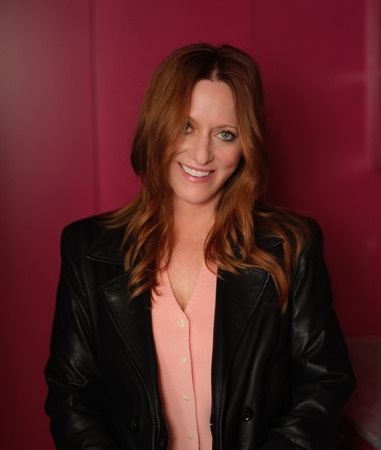
For Susannah B, it’s clear music is simply a law of nature for her. Given the considerable talent she’s descended from, as well as who wrote her latest single It’s Alright to Cry, it’s safe to say it may even be just a matter of being her blood. “I grew up in a very musical household, my mother Carol Hall had a recording deal with Elektra Records in the ’70’s and toured with Don McLean and Kris Kristofferson, among others. She also wrote songs for Sesame Street, Free to Be You & Me, and the score for the long-running Broadway hit The Best Little Whorehouse in Texas which was later made into a movie. She had a lot of success during my childhood, so I never even considered being a songwriter, I felt like music was her thing, not mine,” Susannah stated.
With the release of It’s Alright to Cry, she’s an interesting and eclectic mixture of assured and raw. She’s willing to let herself branch out, be free, even if it may be at the expense of seeming technically assured. Yet the production value steadies this whenever that could have gone slightly off-track.
Her willingness to simply let herself go is reflective not only of her sentimentalities as an artist, but clearly her personal convictions to boot. “…I…just love making albums,” she has stated. “I love the details, the creative choices, the process. I hear percussion and bass lines a lot. I don’t play anything really, but I contribute by singing (‘I play the voice’) and a recording studio is one of my favorite places to spend an afternoon. As a kid, my mom took me and my brother with her to work, so I took lots of naps on leather couches in recording studios. I love how comfy and private and sealed off from the world it feels. Like a musical cocoon.”
The word ‘musical cocoon’ is exactly what the production value of It’s Alright to Cry seeks to emanate. For the most part, it succeeds. Where it fails feels deliberate, once again B allowing herself to not be entirely the angel in the white coat. Her vocals at times crack, hinting at something that feels a tinge melancholic. The song does have this kind of darkness to it to boot. There really is this sense of allowing oneself to fall apart, something almost philosophical about its lyrical and thematic exploration of its apparent subject matter. The ability to make all these potentially disparate elements work is the sign of a true singer-songwriter, Susannah B acing this in spades.
Gwen Waggoner-Howard
